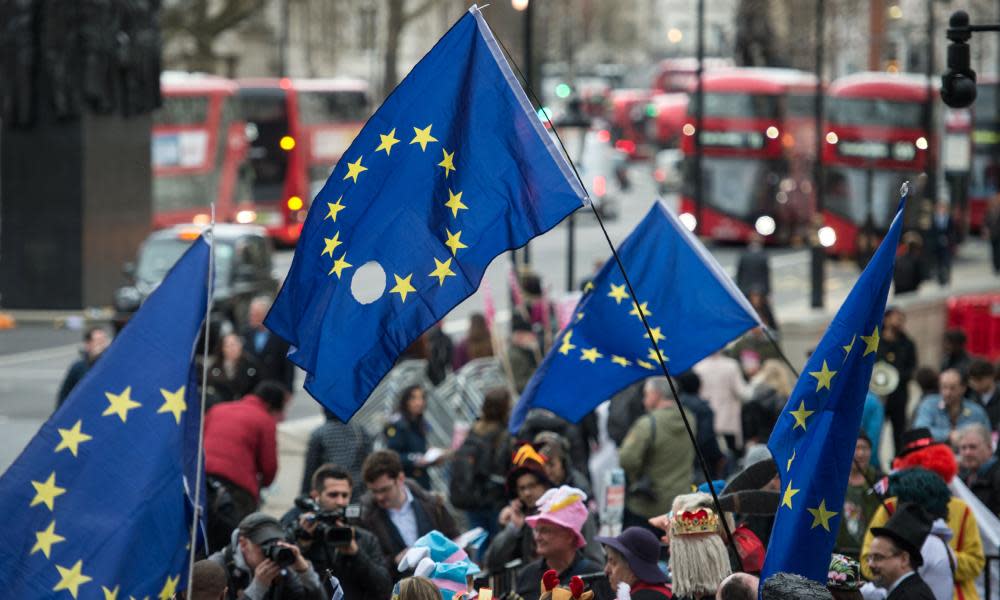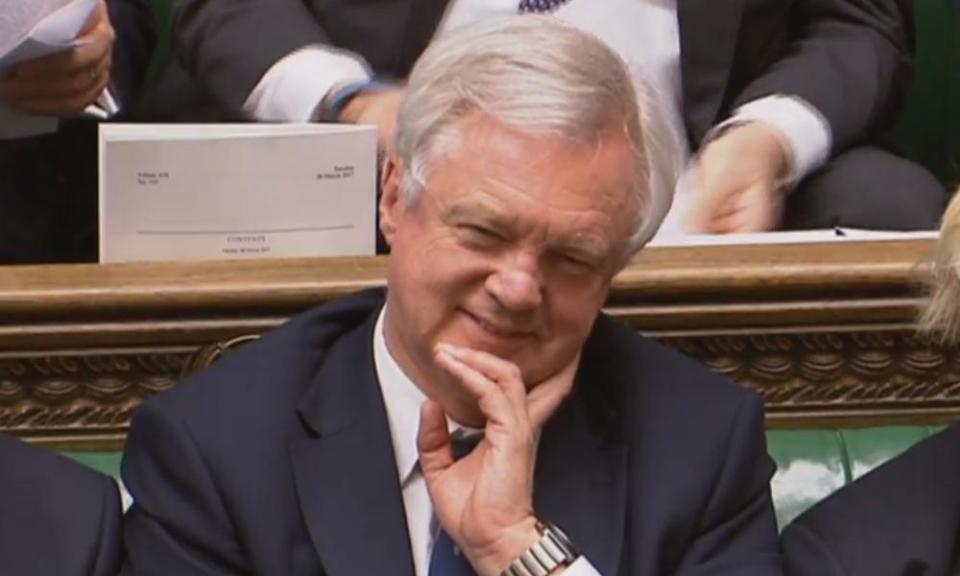David Davis says article 50 letter was not a threat to EU on security

The Brexit secretary, David Davis, has said Theresa May’s article 50 letter was not a threat to withdraw security cooperation with the EU if no final deal is reached before Britain’s exit in two years’ time.
In the letter, May warned European leaders that failure to reach a comprehensive Brexit agreement covering crucial deals on justice and home affairs would result in a weakening of cooperation on crime and security.
Guy Verhofstadt, the former Belgian prime minister who represents the European parliament at the negotiations, called it a threat and said the security of citizens was “far too important to start a trade-off of one and the other”. The Sun newspaper’s headline “Your money or your lives” on Thursday also inferred ministers would withdraw security cooperation if no trade deal was reached.

Speaking on Good Morning Britain, Davis said: “No, we won’t. We have got to negotiate a replacement for that piece of the treaty, and that is what we are setting up to do. We have to do a negotiation, otherwise it won’t be there.”
Davis said he had spent the afternoon on the phone to European and EU ministers, who had complimented the tone of the letter. “What the prime minister was saying was that if we have no deal, and we want a deal, it’s bad for both of us,” he told BBC Radio 4’s Today programme. “If we don’t have a deal, what we are going to lose is the current arrangement on justice and home affairs.”
Earlier, Amber Rudd, the home secretary, said that no threat was being issued by the UK and that trade and security talks were separate, but she added that security cooperation was a reality of EU membership and would need to be negotiated after Brexit.
“If you look at something like Europol, we are the largest contributor to Europol. So if we left Europol, then we would take our information – this is in the legislation – with us. The fact is, the European partners want us to keep our information there, because we keep other European countries safe as well,” she said.
On Thursday morning, Davis also stressed the need for parallel discussions on the framework of a future relationship and the exit deal, a model for negotiation firmly rejected by the German chancellor, Angela Merkel, on Wednesday.
“The negotiations must first clarify how we will disentangle our interlinked relationship,” Merkel said in Berlin. “Only when this question is dealt with can we – hopefully soon after – begin talking about our future relationship.”
The exit deal will cover any further payments to the EU that the UK needs to make to meet its obligation, a figure some in Brussels have speculated could be as high as €60bn.
Davis did not rule out the figure but said the UK would meet its obligations in law, rather than sums submitted as “a negotiating stance”.
The text of the article 50 clause allowed for parallel negotiations, he told the BBC. “The [European] commission has taken a different stance and says, we want to deal with departure first and ongoing relationship second. And there’s an area of departure over this,” he said.
“We think the best way to do a deal is to put the whole package together, we know what the whole benefit is. We don’t see why we should hold up the trade negotiations and the security negotiations.”
On Thursday, Davis will lay out his plan for the great repeal bill, which will copy more than 40 years of EU laws and regulations into UK law. In his white paper – titled Legislating for the United Kingdom’s withdrawal from the European Union – Davis will set out how the government will deal with EU laws that cannot be easily converted.
Secondary legislation, known as statutory instruments, will be used to make technical changes to up to 1,000 regulations, nearly as many as MPs and peers usually deal with in an entire parliament.
Davis said the method of transferring EU law into British law was a mirror to how he saw trade negotiations playing out over two years. “It’s the only free trade deal in the history of the world where the country is already in a deal and has identical product standards,” he told the BBC. “We are in exactly the same place.”

 Yahoo News
Yahoo News 
